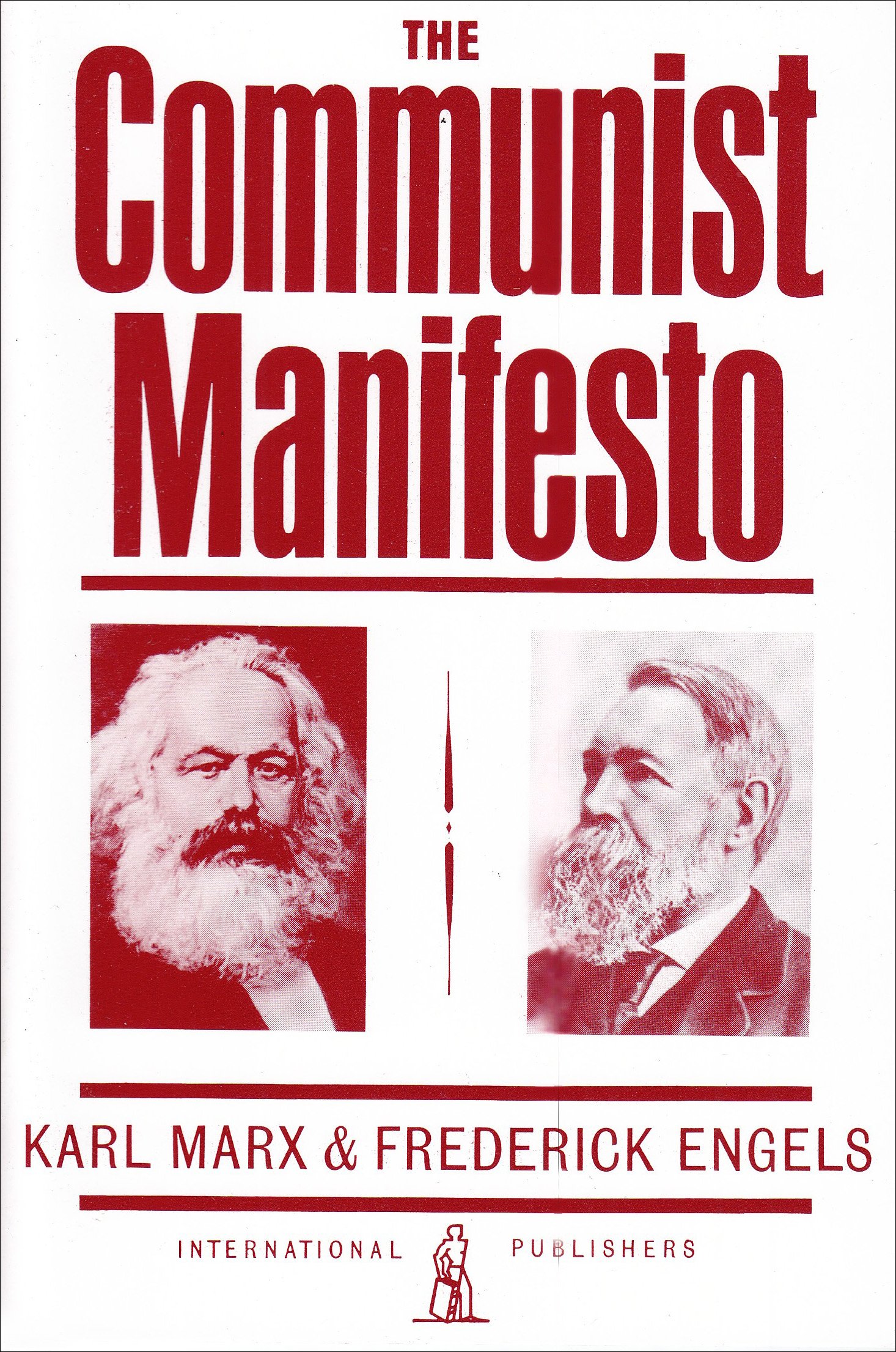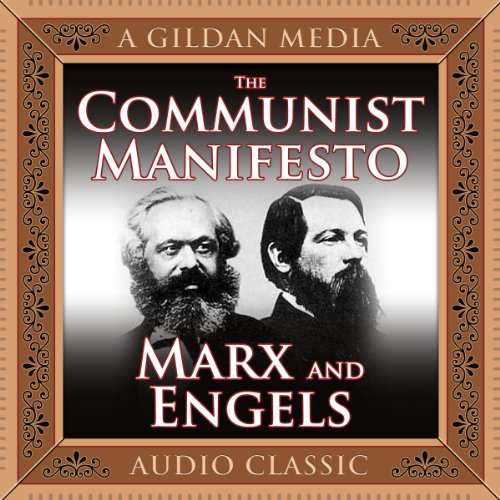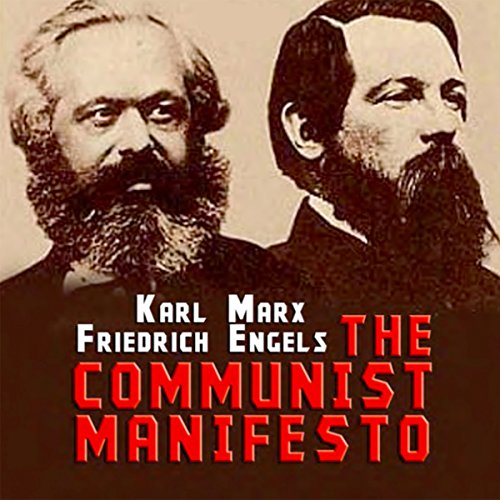Karl Marx and Friedrich Engels’ “The Communist Manifesto” is a cornerstone of socialist literature. It outlines the principles of Marxism and critiques capitalism.
The Communist Manifesto, published in 1848, remains a pivotal document in political theory. Marx and Engels discuss the struggles between the bourgeoisie and the proletariat. They argue for the abolition of private property and the establishment of a classless society.
The manifesto calls for the working class to rise against capitalist exploitation. Its revolutionary ideas have influenced numerous political movements. The text is essential for understanding the development of socialist and communist ideologies. Reading or listening to the audiobook provides valuable insights into the historical context and enduring relevance of their work.

The Birth Of A Revolutionary Text
The Communist Manifesto, authored by Karl Marx and Friedrich Engels, is a pivotal text in political history. This revolutionary document was born out of a partnership that aimed to change the world. The audiobook version of this text offers a new way to engage with its powerful ideas.
Marx And Engels: A Partnership
Karl Marx and Friedrich Engels were the minds behind this manifesto. Their partnership was crucial for the text’s creation. They shared a vision for a better society.
Marx was a philosopher and economist. Engels was a social scientist and businessman. Their combined expertise gave the manifesto its unique strength.
They met in 1844 and soon became close collaborators. Their shared beliefs in social change united them. They wanted to address the issues faced by the working class.
Historical Context Of The Manifesto
The Communist Manifesto was written during a time of great social upheaval. The Industrial Revolution had transformed society. Many workers were living in poor conditions.
In 1848, revolutions erupted across Europe. People were demanding more rights and better living conditions. Marx and Engels saw this as an opportunity.
They believed that workers should unite against the ruling class. Their manifesto was a call to action. It aimed to inspire workers to fight for their rights.
| Authors | Background |
|---|---|
| Karl Marx | Philosopher, Economist |
| Friedrich Engels | Social Scientist, Businessman |
- 1844: Marx and Engels meet.
- 1848: The Communist Manifesto is published.
- Industrial Revolution: Context of great social change.
This audiobook version allows modern listeners to experience the manifesto’s powerful words. It brings the revolutionary spirit of Marx and Engels to life.
Dissecting The Communist Manifesto
Dissecting the Communist Manifesto allows us to understand its core ideas. This audiobook version brings Karl Marx and Friedrich Engels’ work to life. It helps us grasp the revolutionary concepts they introduced.
Class Struggle And The Bourgeoisie
The class struggle is a key theme in the Communist Manifesto. Marx and Engels explain the ongoing conflict between different social classes.
The bourgeoisie is the wealthy class controlling production means. They own factories, land, and businesses. They exploit the working class to increase their wealth.
This struggle leads to social instability and economic inequality. The manifesto argues that the bourgeoisie benefits at the expense of the workers.
Proletariats And Communism
The proletariat is the working class. They do not own production means and sell their labor to survive.
Marx and Engels call for the proletariat to unite and rise against the bourgeoisie. This unity is essential to overthrow the existing system.
Their goal is to establish a communist society. In this society, resources are shared, and class distinctions disappear.
Policies And Prognostications
Marx and Engels outline several policies for achieving communism:
- Abolition of property in land
- Heavy progressive tax
- Abolition of inheritance rights
- Centralization of credit and communication
- Free education for all children
They predict that these policies will lead to a fair and equal society. The manifesto provides a roadmap for a world without class divisions.
| Term | Definition |
|---|---|
| Bourgeoisie | Wealthy class owning production means |
| Proletariat | Working class selling their labor |
| Communism | System with shared resources and no classes |
Impact And Legacy
The Communist Manifesto by Karl Marx and Friedrich Engels has had a profound impact on society. This audiobook version brings their revolutionary ideas to life. The manifesto’s influence spans across centuries, shaping political systems and ideologies.
Influence On Global Politics
The Communist Manifesto has deeply influenced global politics. It inspired revolutions and shaped political movements worldwide. Here are some key impacts:
- Russian Revolution: Sparked the 1917 revolution, leading to the Soviet Union’s formation.
- Chinese Revolution: Influenced Mao Zedong and the rise of communism in China.
- Cuban Revolution: Guided Fidel Castro’s overthrow of the Batista regime.
The manifesto promoted the idea of class struggle. This led to the rise of socialist and communist parties globally.
Modern Interpretations And Critiques
The Communist Manifesto continues to be analyzed today. Scholars and critics offer varied perspectives:
| Interpretation | Critique |
|---|---|
| Economic Analysis | Some argue it oversimplifies class conflict. |
| Political Theory | Critics point to failed communist states. |
| Social Justice | Debates on its relevance in modern society. |
Modern interpreters look at the manifesto through various lenses. These include economic, political, and social perspectives. The critiques often focus on its practical applications and historical outcomes.


Conclusion
The “Communist Manifesto” audiobook offers timeless insights by Karl Marx and Friedrich Engels. It’s a must-listen for anyone interested in political theory. This classic work continues to influence modern thought and societal structures. Dive into this audiobook to understand the roots of communism and its impact on global history.



